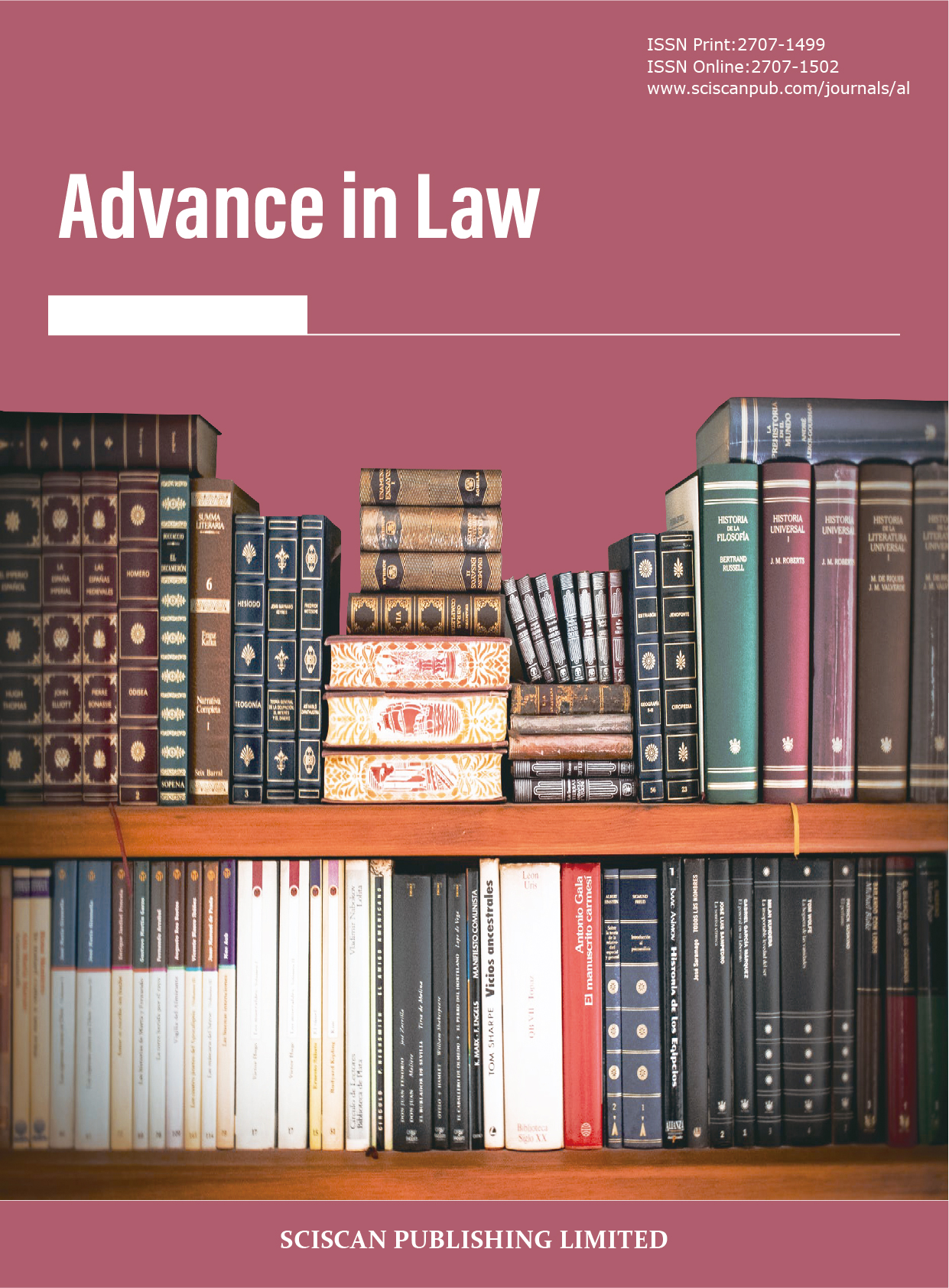Advance in Law
ISSN Print:2707-1499
ISSN Online:2707-1502
Contact Editorial Office
Subscribe to the latest published information from SCISCAN
论跨境损害的国家赔偿 责任
National Compensation Liability for Cross-Border Damages
- Authors: 任俊豪
-
Information:
中南财经政法大学法律硕士教育中心,武汉
- Keywords: 国际法不加禁止行为;国家赔偿责任;跨境损害
- Acts not prohibited by International Law; State compensation liability; Cross-border damages
- Abstract: 随着工业化水平的日益提高,人类改造自然的能力逐渐增强,自然资源被广泛运用于生产生活的各个环节。资源的稀缺性、高效使用资源的需求、掌控更多资源的追求都促使人类不断创新生产方式,不断探索海底等未知空域。各国在核能利用、原油运输、空间实体发射、海底勘探与开发的过程中不可避免的会造成跨境污染与损害。虽然这类行为并不违反国际法,然而面对这种新现实,显然需要提高国际法规制水平。作为国家责任制度的补充,国家赔偿责任制度应运而生。本文共分为六章。第一章将对国际法不加禁止行为、国家赔偿责任等 概念进行界定;第二章、第三章将讨论国家赔偿责任的国际立法与司法实践;第四章、第五章、第六章将分别探讨国家赔偿责任的构成要件、承担主体、承担方式。
- With the increasing level of industrialization, the ability of human beings to transform nature is gradually enhanced, and natural resources are widely used in all aspects of production . The scarcity of resources, the demand of efficient use of resources and the pursuit of controlling more resources urge human beings to innovate production methods and explore unknown airspace such as the seabed. Cross-border pollution and damage are inevitable in the process of ocean transportation, nuclear energy utilization, outer space exploration and seabed exploration and exploitation. Although such acts do not violate international law, it is clear that the level of international law regulation needs to be improved in the face of this new reality. As a supplement to the state liability system, the state compensation liability system emerges as the times require. This article is divided into six chapters. Chapter I defines acts not prohibited by international law, state compensation liability and other concepts. Chapters II and III discuss international legislation and judicial practice of state compensation liability. Chapters IV, V and VI discuss the constitutive elements, subject and manner of state compensation liability.
- DOI: https://doi.org/10.35534/al.0303015
- Cite: 任俊豪.论跨境损害的国家赔偿责任[J].法学进展,2021,3(3):134-144.














